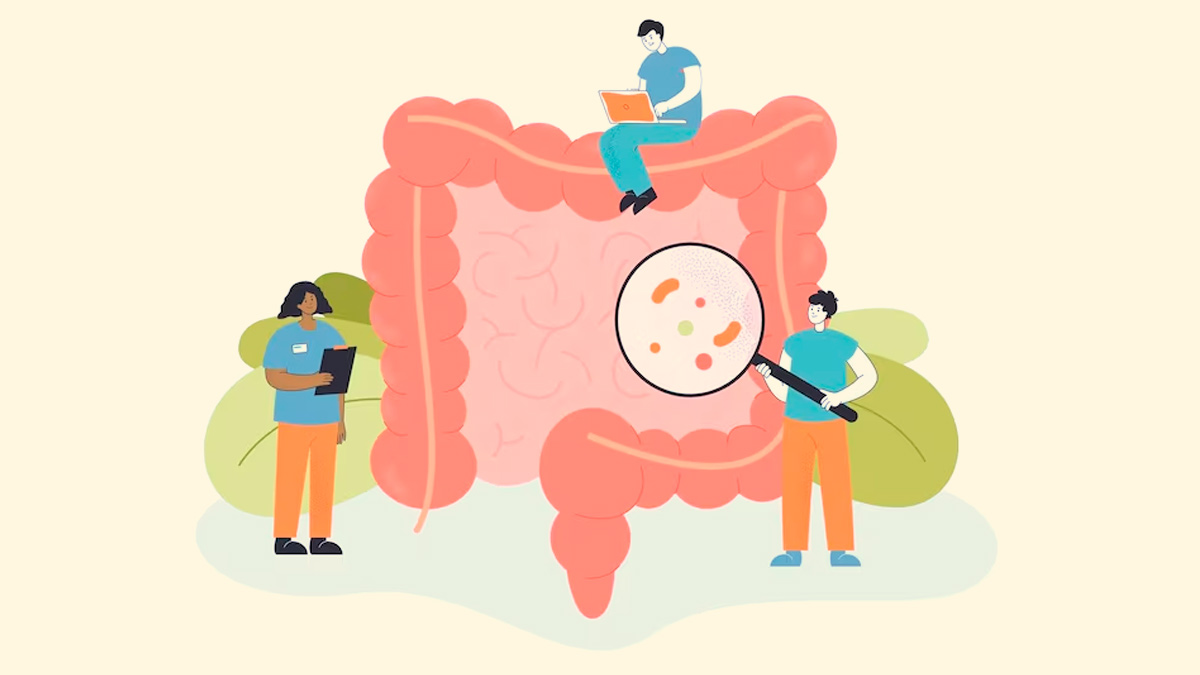
While the brain has long been recognised as the command centre of the body, recent scientific discoveries have shed light on the surprising complexity of the gut, earning it the title of our "second brain." This unique concept has revolutionised our understanding of the body-mind connection and has significant implications for our physical and mental well-being.
Table of Content:-
Read to know why the gut is called our second brain and explore the remarkable functions and communication mechanisms that lie within this often-underestimated part of our anatomy.
The Enteric Nervous System: The Brain in Our Gut
According to Dr Rajiv Chaudhary, KGMU, Lucknow, the enteric nervous system (ENS) is a complex network of neurons located within the walls of the gastrointestinal tract, comprising the oesophagus, stomach, small intestine, and colon. Surprisingly, the ENS contains approximately 500 million neurons, more than the spinal cord. This vast network is capable of independent function, earning it the nickname "the second brain”.
The ENS operates autonomously, responsible for managing the digestive process, from swallowing to nutrient absorption and waste elimination. It regulates the secretion of digestive enzymes and controls the rhythmic contractions of the gastrointestinal muscles, collectively known as peristalsis, to propel food throughout the digestive system.
Bidirectional Communication: The Gut-Brain Axis
While the gut and brain are physically separated, they maintain a profound connection through a bidirectional communication system called the gut-brain axis. This intricate communication network involves the ENS, the central nervous system (CNS), and the autonomic nervous system (ANS).
Also read: Can Type-2 Diabetes Cause Altered Brain Structure? Doctor Shares Risks and Management Tips
From Gut to Brain: Gut Sensations and Emotions
The ENS sends constant streams of information to the brain via the vagus nerve, which connects the two systems. Signals from the gut can influence mood, emotions, and cognitive functions. This phenomenon is evident when you experience "butterflies" in your stomach due to anxiety or stress, showcasing how emotional states can manifest in gastrointestinal sensations.
Moreover, the gut produces neurotransmitters such as serotonin, dopamine, and gamma-aminobutyric acid (GABA), which significantly impact our emotional well-being. According to Integrative Medicine a Clinician’s Journal, around 95% of serotonin, a neurotransmitter closely linked to mood regulation, is produced in the gut, not the brain.
From Brain to Gut: Cognitive Influence on Digestion
Conversely, the brain has a direct impact on gut functions. Stress, for instance, triggers the release of stress hormones like cortisol and adrenaline. These hormones can disrupt digestion, leading to symptoms like indigestion, bloating, and irritable bowel syndrome (IBS). The gut is highly sensitive to emotional and psychological stress, underscoring the importance of mental well-being in maintaining gastrointestinal health.
The Gut Microbiota: The Mindful Microbial Community
Apart from the ENS and the gut-brain axis, the gut's second brain status is further substantiated by the vast ecosystem of microorganisms that reside within it—the gut microbiota. This thriving community of trillions of bacteria, viruses, fungi, and other microorganisms plays a pivotal role in regulating gut health and influencing brain function.
The gut microbiota actively communicates with the ENS, impacting its behaviour and influencing its signals to the brain. Moreover, these tiny inhabitants produce neuroactive compounds and metabolites that can cross the blood-brain barrier, directly influencing brain function and cognitive processes.

Implications for Health and Well-being
Recognising the gut as our second brain has immense implications for various aspects of health and well-being. The bidirectional gut-brain communication underscores the importance of maintaining a healthy gut to promote mental health and vice versa.
Mental Health
Numerous studies have linked an imbalanced gut microbiota to conditions such as anxiety, depression, and even neurodegenerative disorders like Alzheimer's and Parkinson's disease. Prioritising gut health through a balanced diet, probiotics, and prebiotics may offer new avenues for improving mental health.
Also read: Brain Tumour Headaches: What Are Its Recognising Symptoms and Sensations?
Digestive Disorders
Understanding the gut's autonomous function emphasises the importance of nurturing a healthy ENS. Proper diet, stress management, and regular exercise can aid in preventing and managing gastrointestinal disorders like IBS and GERD.
The gut's status as our second brain has undoubtedly transformed our understanding of human physiology and health. The enteric nervous system's vast neural network and the bidirectional gut-brain axis highlight the profound connection between our gut and brain. The gut microbiota's role in influencing both gut and brain function adds another layer of complexity to this fascinating relationship. Nurturing our second brain through a holistic approach that considers both physical and mental well-being is key to leading a healthier and happier life.
Also watch this video
How we keep this article up to date:
We work with experts and keep a close eye on the latest in health and wellness. Whenever there is a new research or helpful information, we update our articles with accurate and useful advice.
Current Version